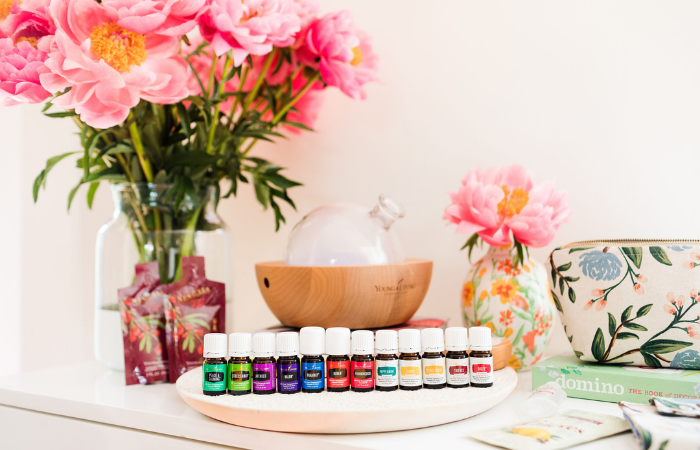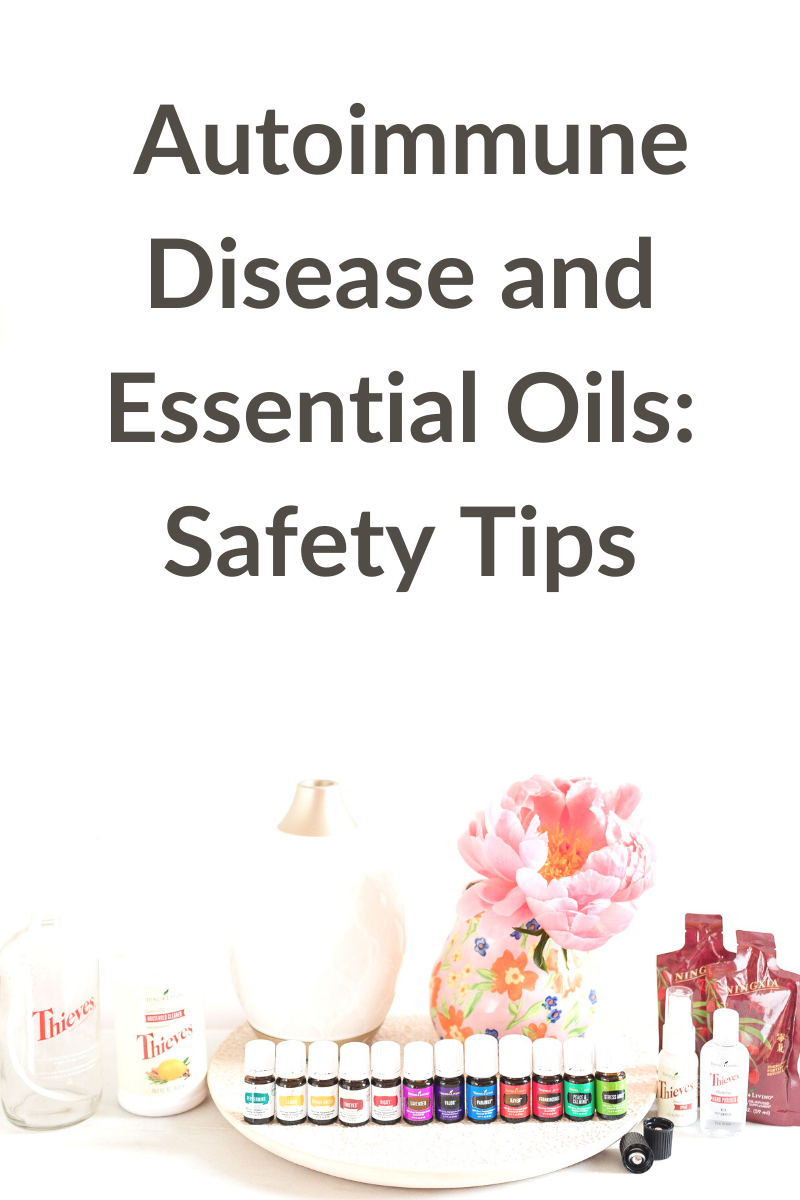
If you have been following my blog for some time, you know all about my Hashimoto’s diagnosis. One of the symptoms of my autoimmune disease has been heightened chemical sensitivity. I simply can’t use common household and personal care products because I react negatively to most of them.
Because of this chemical sensitivity, I always have to think carefully about which products I’m using. I look for non-toxic products, with no harsh chemicals or smells. Yes, often it means that these products are a bit more pricey, but I’d rather put a little bit more money upfront than suffer from an allergic reaction or a flare up!!
So naturally, when I got into essential oils, I did my homework. I wanted to make sure it was safe for me to use essential oils even though I have an autoimmune condition.
I’m sharing the results of my research in this post so you can make an informed decision if you are considering using essential oils.
Quality matters!
Like most things you can buy in life, you get what you pay for. I’ve learn this the hard way many times in the past. Now I prefer to pay a little bit more and get a top quality product. I make up for it by thinking carefully about what I want to purchase (I don’t splurge in the moment and buy a ton of stuff I’m not even using later) and having higher quality products often means that you can use less of them. So all in all I don’t think it is a bad idea to go for quality!
For my essential oils, I’ve decided to go with Young Living. I trust this brand. Young Living’s dedication to quality ensures that they produce pure, therapeutic-grade essential oils with the complete, optimal blend of plant constituents to provide maximum potency and results. Click here to learn more about the Seed to Seal quality commitment of Young Living.
Having a good product in your hands is a good start, but there is more. Follow these safety tips and recommendations below to stay safe while enjoying essential oils!
Safety tips for everyone:
Here are a few guidelines to follow for anyone wanting to start using essential oils.
- Read the product label for appropriate use! Some essential oils are too strong to be used internally or applied topically on their own.
- Avoid putting essential oils in sensitive areas such as eyes, ears, genitals, and mucous membranes. If you choose to apply oil in any sensitive area, dilute 1 drop of the essential oil to 5-10 drops of carrier oil.
- Stop using the oil if irritation or discomfort on the skin occurs, and do not rinse with water. Apply a carrier oil to the affected area to flush the oil off the skin.
- Citrus-based oils and blends may cause temporary photosensitivity. Follow individual label instructions and avoid direct sunlight for 12–48 hours.
Essential oils do not generally contain the proteins responsible for allergic reactions, which minimizes the likelihood of an allergic reaction. However, individual sensitivities do vary, and people can still experience sensitivities to essential oils. When using a new essential oil, dilution and a skin spot test is a good idea to ensure that you do not experience any sensitivity to that particular oil.
Safety tips for autoimmune warriors:
In the course of my researches, I’ve discovered that there are immune-stimulating and immune-supporting essential oils. The concern of course is could these immune-stimulating oils cause a flare-up of your autoimmune symptoms. The answer is yes, they could, BUT don’t throw them all in the trash! You may still be able to use them! Everybody’s chemistry is different and you might be able to use immuno-stimulating oils without any problem.
Here are my personal recommendations:
- Educate yourself about essential oils and learn which effects they can have on your system. You can find many great books on the subject. I also found a great chart here to get started.
- If you choose to use those immunostimulant oils, or any essential oil, in my opinion, proceed with caution and use the trial and error system to learn what works best for you. Introduce only one new essential oil at a time in your routine. This way, if you get a reaction, you’ll be able to quickly identify the trigger.
- Be really careful if you decide to ingest essential oils. Again, proceed with caution, start with only 1 drop and introduce only one at a time.
- Seek the advice of your health care practitioner or pharmacist about potential interactions if you are taking any medication. Under no circumstance should you stop taking your medication and/or replace it with essential oils without consulting your doctor first! Essential oils are not meant to replace medication.
- Know that you may be able to use certain oils only for a short period of time (a few days). If you notice discomfort, take a break for a while. You may be able to use them again later.
Conclusion:
The bottom line is, suffering from an autoimmune disease doesn’t prevent you from using essential oils. In fact, your overall health and wellness may greatly benefit from them. My advice, use caution, and introduce only one new essential oil at a time in your routine. This way, if you react negatively, you’ll be able to quickly identify the culprit!







Hello, my question is, should I be diffusing oils that technically I shouldn’t be eating, i.e. can I diffuse cardamum when I’m in the elimination phase and shouldn’t technically be consuming it? Or is that what you meant by the immuno-stimulating?
Hello Kassandra!
Cardamom is an immune-supporting essential oil so that’s a good start. I would go ahead and try diffusing it on its own (one oil at a time) for a couple of days to see if you react to it.
Diffusing isn’t the same as ingesting. I hope this helps!
Is tea tree oil sage to use if you are on the AIP diet? I can’t seem to find a short and concise answer. Thank you!
Hi there,
I’ve been using tea tree oil with no problem. I use it sparingly though only when I have a fever blister.